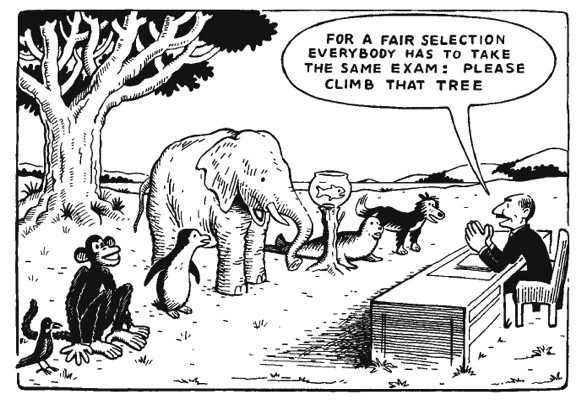There are certainly some benefits
to standardized testing. As a national test that’s administered in virtually
all middle and high schools, these tests leave no stones unturned (except for
private schools). These standardized tests reflect whether teachers are
exceptionally good at teaching or if they are neglectful of their students’
education. These tests also allow districts, schools, and regions to be rated
on quality of education.
Tests also keep teachers
accountable for spending class time actually teaching. Although there is debate
of whether or not these tests accurately represent how skilled and erudite
these students are, it does capture a general idea of how well these students
are learning. For example, on a multiple-choice test of math problems, of
course a certain student may make minor mistakes or lucky guesses to sway the
accuracy of score, but at least the score is in a ball park range.
Although there are certain benefits
of standardized testing, overall I think we can get rid of them. In the private
school I attended from 4th-6th grade, the teachers came
together to determine what was important to learn. Teachers focused on
challenging students and including life-relevant experiences rather than
filling our brains with things on a list. We celebrated Passover just to see
what it was like, teachers taught us how to have correct manners, and in gym
our teacher taught us skills such as how to fish and how to stay healthy
through winters. When I moved back into a public school in 7th
grade, I had found that I was actually ahead of other students in various
subjects; I believe the pressures of standardized testing may have influenced
that. When teachers are forced to focus on preparing students for standardized
tests, they lose the big picture of how these students should be prepared for
their future. Teachers may find themselves limited by the standards set upon
them.
I don’t remember the names of the
exact standardized tests I took, but I remember how I felt towards each subject
test. I thought the biology test was an unrealistic measure of how smart I was
because it was multiple-choice and focused on specific details that I never
even learned in class. It included questions like, “What family and genus is a
white-tailed fox in?” I literally guessed on half of the questions. I thought
it was fun to take the math test because I am naturally inclined to math and it
came easy to me. I didn’t like reading comprehension because by the time I read
the passage and started answering the questions, the time was up and I had to
mark random answers. It was only until I started studying for the GRE that I
realized that the reading comprehension test isn’t about how well you
comprehend reading, it’s about how well you are at taking that type of test and
what types of techniques you use.
I understand that my personal
preferences towards certain topic tests influences how I felt about taking these
tests, but my peer students also didn’t like these tests for similar reasons. A
few of my friends complained about the math section, wishing it was only
reading comprehension, while other friends had the same tendency towards math
as I had. Regardless, I think teachers could find better use of their time and
lessons if they focused on teaching things they believed relevant to their
students rather than what has to be taught for a good standardized test score
rating.
 |
| Retrieved from: https://academichelp.net/wp-content/uploads/2012/12/standardized-testing-comic3.jpg |